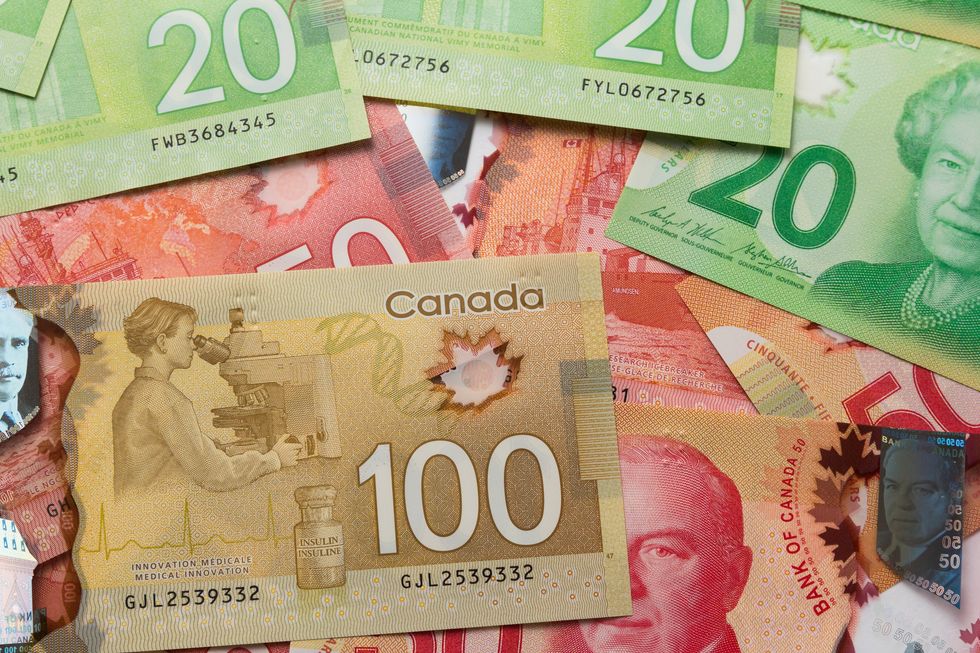Business
Minimum Wage Increases in Five Provinces Impact Workers Nationwide

As of October 1, 2025, minimum wage increases took effect in five Canadian provinces, providing a financial boost to thousands of workers. The changes come as part of ongoing efforts to address the escalating cost of living. Notably, Quebec is not included in this latest adjustment, having already raised its minimum wage earlier this year.
In May 2025, Quebec’s minimum wage increased from $15.75 to $16.10, benefiting over 200,000 workers. This adjustment, while providing some relief, now places Quebec in a more competitive landscape as other provinces implement their hikes.
The recent increases are significant across several provinces. Saskatchewan’s minimum wage rose from $15.00 to $15.35 per hour. Manitoba’s rate is now $16.00, matching the new rates in Prince Edward Island and Nova Scotia, which both saw their minimum wage jump to $16.50. Ontario experienced one of the largest increases, with its workers now earning $17.60 per hour.
While these changes may seem minor on a per-hour basis, they can lead to substantial annual gains for full-time workers. For instance, a 30-cent increase translates to over $600 annually, while Nova Scotia’s 80-cent rise could mean an additional $1,600 before taxes.
Quebec’s current minimum wage of $16.10 is still competitive, surpassing Alberta, Saskatchewan, New Brunswick, and Newfoundland and Labrador. However, it lags behind provinces like Ontario, British Columbia, Yukon, and Nunavut. In real terms, this wage equates to approximately $31,395 annually for a typical 37.5-hour workweek. This figure remains significantly below Quebec’s average salary, which exceeds $64,000.
Since 2019, Quebec’s minimum wage has risen by just over 34%, while inflation during the same period has increased by about 25%. The disparity between these rates highlights ongoing challenges for minimum wage workers in maintaining purchasing power.
Comparative Minimum Wage Across Canada
Nunavut currently holds the highest minimum wage in Canada at $19.75 per hour, followed closely by Yukon at $17.94 and British Columbia at $17.85. Conversely, Alberta has maintained its minimum wage at $15.00 since 2018, making it the lowest in the country.
Here is how the minimum wage stacks up across Canada:
– Nunavut: $19.75/hr
– Yukon: $17.94/hr
– British Columbia: $17.85/hr
– Ontario: $17.60/hr
– Northwest Territories: $16.95/hr
– Prince Edward Island: $16.50/hr
– Nova Scotia: $16.50/hr
– Quebec: $16.10/hr
– Newfoundland & Labrador: $16.00/hr
– Manitoba: $16.00/hr
– New Brunswick: $15.65/hr
– Saskatchewan: $15.35/hr
– Alberta: $15.00/hr
The adjustments in the minimum wage across these provinces reflect the ongoing discussions regarding fair compensation and economic viability for workers in Canada. As provinces continue to assess their wage policies, the impact on workers and their families remains a critical consideration.
-

 World3 months ago
World3 months agoScientists Unearth Ancient Antarctic Ice to Unlock Climate Secrets
-

 Entertainment3 months ago
Entertainment3 months agoTrump and McCormick to Announce $70 Billion Energy Investments
-

 Science3 months ago
Science3 months agoFour Astronauts Return to Earth After International Space Station Mission
-

 Lifestyle3 months ago
Lifestyle3 months agoTransLink Launches Food Truck Program to Boost Revenue in Vancouver
-

 Technology2 months ago
Technology2 months agoApple Notes Enhances Functionality with Markdown Support in macOS 26
-

 Top Stories7 days ago
Top Stories7 days agoUrgent Update: Fatal Crash on Highway 99 Claims Life of Pitt Meadows Man
-

 Sports3 months ago
Sports3 months agoSearch Underway for Missing Hunter Amid Hokkaido Bear Emergency
-

 Politics2 months ago
Politics2 months agoUkrainian Tennis Star Elina Svitolina Faces Death Threats Online
-

 Technology3 months ago
Technology3 months agoFrosthaven Launches Early Access on July 31, 2025
-

 Politics3 months ago
Politics3 months agoCarney Engages First Nations Leaders at Development Law Summit
-

 Entertainment3 months ago
Entertainment3 months agoCalgary Theatre Troupe Revives Magic at Winnipeg Fringe Festival
-

 Politics7 days ago
Politics7 days agoShutdown Reflects Democratic Struggles Amid Economic Concerns




















